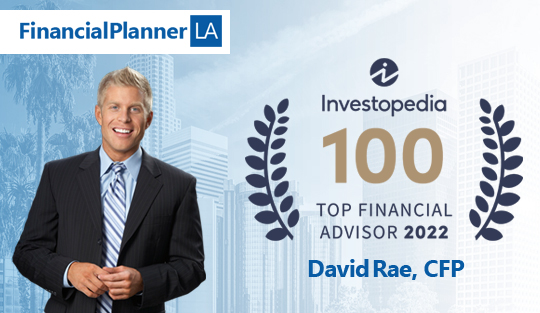
The run-up in stock prices over the past few years, paired with relatively low-interest rates has delivered an excellent way for rich Americans to avoid paying taxes on their investment gains. This strategy has been dubbed “Buy, Borrow, Die” and has become a way for the uber-wealthy, with tax planning experts by their sides, to fund their lifestyles while minimizing their taxes along the way. You may be wondering, how can I use this tax planning tip as part of my tax planning strategy? Keep reading.
The most common way to do this is a Securities Backed Line of Credit (SBLOC), where you take a loan against the value of your stock portfolio. You could think of this as a Home Equity Line of Credit where your stocks are the collateral rather than your home. An SBLOC has a few benefits that are quite appealing, like flexible repayment schedules, easy approval (with little or no cost) and, in many cases, low-interest rates. These loans can allow tech employees to avoid selling when stocks are down (like they are in 2022) or up dramatically, as they have been for much of the past decade.
By David Rae Certified Financial Planner™, Accredited Investment Fiduciary™
What Can You Use An SBLOC For?
Some of these “Buy, Borrow, Die” loans are used to bridge short-term liquidity needs. Perhaps you own a large amount of company stock and can only sell at certain times per year. These buyback windows may not line up when you need money for a home down payment or to pay the taxes owed on your other equity compensation. Others may need to put off selling stock until the following tax year, when they may be in a lower tax bracket.
If you are bullish on the stock market, and you can get an interest rate that is lower than your conservative estimate of how much your portfolio will appreciate, you will be coming out ahead. For those of you reading this who hate to pay more taxes than you have to, an SBLOC is a way to access the value of your stock portfolio without having to incur taxes. You only owe capital gains taxes when you sell an investment that has increased in value. With a Securities Backed Line of Credit, you take a loan against your stock holdings.
For the “Die” portion of the “Buy, Borrow, Die,” you receive a step-up in cost-basis when you die. Your heirs would be able to sell the stock without owing capital gains once you have passed away. Since we are likely talking about the really rich here, estate taxes are separate issues. Similarly, any additional gains in the value of your stock after you have passed would be subject to capital gains.
Related: How Does California Tax Capital Gains?

Is It Hard to Get A SBLOC?
It should be much easier to get a Security Backed Line of Credit (SBLOC) than it is to get a mortgage. That being said, you won’t be able to get as large a loan against securities as you would a house. The maximum loan is typically capped at 50% of the investment account’s value, which can fluctuate. I usually don’t recommend my wealth management clients borrow over 25% of their account balance if they want to use the loan for the long term. This helps avoid any issues when the market gets volatile

For most people reading this, your SBLOC will be based on investments in publicly held companies. There are also often programs available at private companies like SpaceX or other tech companies that are pre-IPO. We have also seen Elon Musk publicly use his TeslaTSLA +5% shares as collateral for loans.
A securities-backed line of credit isn’t suitable for everyone. For one thing, you must have substantial assets to borrow against. It can be a good tool to push taxes or sales of highly appreciated assets to a more tax-efficient time or year based on your taxable income. An SBLOC may allow you to stay invested during a bear market (like we are in now) and wait for the stock market to rebound before closing out equity positions.
DAVID RAE, CFP®, AIF® is a Los Angeles-based financial planner with DRM Wealth Management, a regular contributor to Advocate Magazine, Huffington Post, and Forbes not to mention numerous TV appearances. He helps smart people across the USA get on track for their financial goals. For more information visit his website at www.davidraefp.com










[…] Related: Will An SBLOC Help You Pay Fewer Taxes? […]
[…] Top Financial Advisor Powerball Winner Guider Los Angeles David Rae Tax Planning Tip: How To Use An SBLOC To Lower Your Taxes Today […]
[…] Related: Go Beyond The Mortgage Deduction With An SBLOC […]
[…] Related: Go Beyond The Mortgage Deduction With An SBLOC […]
[…] ended up serving to them take a Securities Backed Line of Credit score (SBLOC) to reduce each state taxes and federal good points taxes whereas nonetheless giving them the cash […]
[…] ended up helping them take a Securities Backed Line of Credit (SBLOC) to minimize both state taxes and federal gains taxes while still giving them the money for the down […]
[…] ended up helping them take a Securities Backed Line of Credit (SBLOC) to minimize both state taxes and federal gains taxes while still giving them the money for the down […]
[…] ended up helping them take a Securities Backed Line of Credit (SBLOC) to minimize both state taxes and federal gains taxes while still giving them the money for the down […]
[…] ended up helping them take a Securities Backed Line of Credit (SBLOC) to minimize both state taxes and federal gains taxes while still giving them the money for the down […]
[…] ended up helping them take a Securities Backed Line of Credit (SBLOC) to minimize both state taxes and federal gains taxes while still giving them the money for the down […]
[…] ended up helping them take a Securities Backed Line of Credit (SBLOC) to minimize both state taxes and federal gains taxes while still giving them the money for the down […]
[…] ended up helping them take a Securities Backed Line of Credit (SBLOC) to minimize both state taxes and federal gains taxes while still giving them the money for the down […]
[…] ended up helping them take a Securities Backed Line of Credit (SBLOC) to minimize both state taxes and federal gains taxes while still giving them the money for the down […]
[…] ended up helping them take a Securities Backed Line of Credit (SBLOC) to minimize both state taxes and federal gains taxes while still giving them the money for the down […]
[…] ended up helping them take a Securities Backed Line of Credit (SBLOC) to minimize both state taxes and federal gains taxes while still giving them the money for the down […]
[…] ended up helping them take a Securities Backed Line of Credit (SBLOC) to minimize both state taxes and federal gains taxes while still giving them the money for the down […]
[…] ended up helping them take a Securities Backed Line of Credit (SBLOC) to minimize both state taxes and federal gains taxes while still giving them the money for the down […]
[…] ended up helping them take a Securities Backed Line of Credit (SBLOC) to minimize both state taxes and federal gains taxes while still giving them the money for the down […]
[…] ended up helping them take a Securities Backed Line of Credit (SBLOC) to minimize both state taxes and federal gains taxes while still giving them the money for the down […]
[…] ended up helping them take a Securities Backed Line of Credit (SBLOC) to minimize both state taxes and federal gains taxes while still giving them the money for the down […]
[…] ended up helping them take a Securities Backed Line of Credit (SBLOC) to minimize both state taxes and federal gains taxes while still giving them the money for the down […]
[…] ended up helping them take a Securities Backed Line of Credit (SBLOC) to minimize both state taxes and federal gains taxes while still giving them the money for the down […]
[…] ended up helping them take a Securities Backed Line of Credit (SBLOC) to minimize both state taxes and federal gains taxes while still giving them the money for the down […]
[…] ended up helping them take a Securities Backed Line of Credit (SBLOC) to minimize both state taxes and federal gains taxes while still giving them the money for the down […]
[…] ended up helping them take a Securities Backed Line of Credit (SBLOC) to minimize both state taxes and federal gains taxes while still giving them the money for the down […]
[…] ended up helping them take a Securities Backed Line of Credit (SBLOC) to minimize both state taxes and federal gains taxes while still giving them the money for the down […]
[…] ended up helping them take a Securities Backed Line of Credit (SBLOC) to minimize both state taxes and federal gains taxes while still giving them the money for the down […]
[…] ended up helping them take a Securities Backed Line of Credit (SBLOC) to minimize both state taxes and federal gains taxes while still giving them the money for the down […]
[…] ended up helping them take a Securities Backed Line of Credit (SBLOC) to minimize both state taxes and federal gains taxes while still giving them the money for the down […]
[…] por ajudá-los a tirar uma Traço de Crédito Garantida por Valores Mobiliários (SBLOC) para minimizar os impostos estaduais e os impostos federais sobre ganhos, enquanto ainda dava a […]
[…] ended up serving to them take a Securities Backed Line of Credit (SBLOC) to reduce each state taxes and federal beneficial properties taxes whereas nonetheless giving them […]
[…] ended up serving to them take a Securities Backed Line of Credit (SBLOC) to reduce each state taxes and federal beneficial properties taxes whereas nonetheless giving them […]